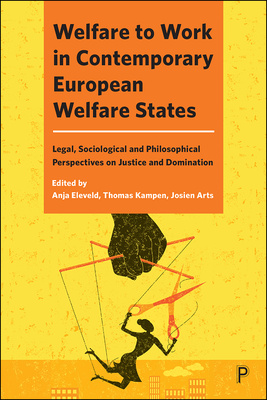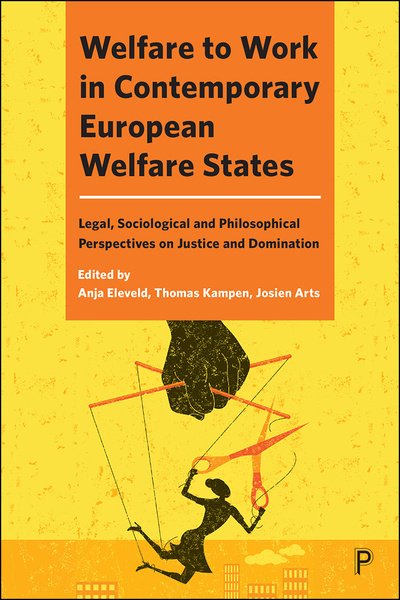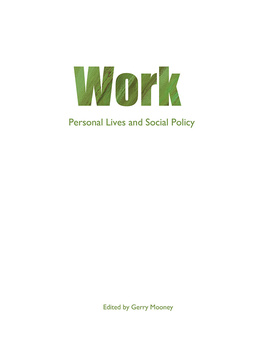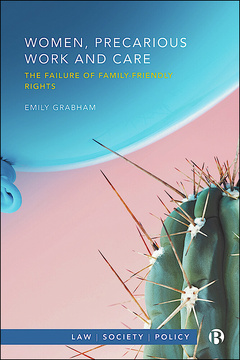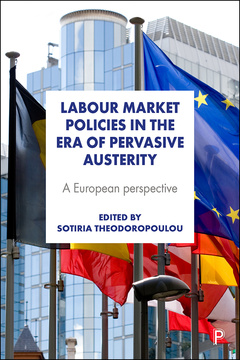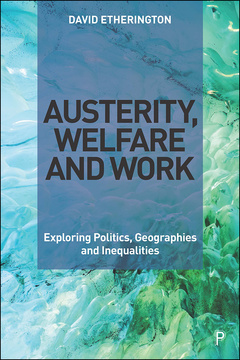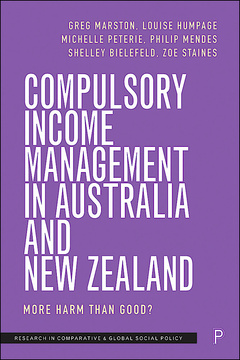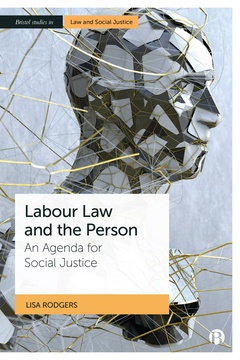Welfare to Work in Contemporary European Welfare States
Legal, Sociological and Philosophical Perspectives on Justice and Domination
Edited by Anja Eleveld, Thomas Kampen and Josien Arts
Published
Jan 29, 2020Page count
364 pagesISBN
978-1447340010Dimensions
234 x 156 mmImprint
Policy PressPublished
Jan 29, 2020Page count
364 pagesISBN
978-1447340140Imprint
Policy PressPublished
Jan 29, 2020Page count
364 pagesISBN
978-1447340140Imprint
Policy PressWith welfare to work programmes under intense scrutiny, this book reviews a wide range of existing and future policies across Europe.
Seventeen contributors provide case studies and legal, sociological and philosophical perspectives from around the continent, building a rich picture of welfare to work policies and their impact. They show how many schemes do not adequately address social rights and lived experiences, and consider alternatives based on theories of non-domination.
For anyone interested in the justice of welfare to work, this book is an important step along the path towards more fair and adequate legislation.
“… a thoroughly convincing and grounded argument for criticizing contemporary welfare to work ideologies and practices… develops a range of standards and options which are open to policy makers. The recommendations are down to the ground and can be implemented straight away.” Journal of Social Security Law
“This book provides a very important analysis and a very insightful critique of Welfare to Work programmes in Europe and social security researchers should be indebted to Anja Eleveld and her colleagues for bringing it to fruition.” European Journal of Social Security
“This interdisciplinary book… not only advances our understanding of power asymmetries and injustice in WTW policies in Europe but also asks a crucial question: What knowledge, tools, and institutions are needed to challenge domination in modern workfare states?” Social Policy & Administration
“This is one of the best books I have read on the key issue for contemporary social protection. Academics, students and policy makers alike should read with an open mind.” Mark Simpson, Ulster University
Anja Eleveld is a labour lawyer, political scientist and Assistant Professor at the VU University Amsterdam. Her research focuses on the regulation and implementation of conditional welfare.
Thomas Kampen is a sociologist and Assistant Professor at the University of Humanistic Studies. His research focuses on the lived experiences of welfare state reforms in the Netherlands.
Josien Arts received her PhD in Sociology from the University of Amsterdam. She examined local practices of welfare-to-work policy in the Netherlands in the context of post-Fordist labour markets.
Welfare to work, social justice and domination: an introduction to an interdisciplinary normative perspective on welfare policies ~ Anja Eleveld, Thomas Kampen and Josien Arts
PART I: Legal perspectives
Workfare’s persistent philosophical and legal issues: forced labour, reciprocity and a basic income guarantee ~ Amir Paz-Fuchs
The right to work: a justification for welfare to work? ~ Elise Dermine
Limitation of welfare to work: the prohibition of forced labour and the right to freely chosen work ~ Elise Dermine
The duty to work as precondition for human dignity: a Swiss perspective on work programmes ~ Melanie Studer and Kurt Pärli
The prohibition of forced labour and the right to freely chosen work: a comparison of Denmark, the Netherlands and the UK ~ Anja Eleveld, Neville Harris and Christian H. Schøler
PART II: Sociological perspectives
Implementing social justice within activation policies: the contribution of the capability approach ~ Jean-Michel Bonvin and Luca Perrig
The silent expansion of welfare to work policies: how policies are enhanced through the use of categorizations, evidence-based knowledge and self-governance ~ Mathias H. Nielsen, Sophie Danneris and Niklas A. Andersen
Questions of conduct and social justice: the ethics of welfare conditionality within UK social security ~ Peter Dwyer
Pressing, repressing and accommodating: local modes of governing social assistance recipients in welfare to work programmes in the Netherlands ~ Josien Arts
Left in limbo: social assistance recipients' evolving views on the fairness of workfare volunteerism ~ Thomas Kampen
PART III: Philosophical perspectives
Welfare to work and the republican theory of non-domination ~ Anja Eleveld
Unconditional basic income and duties of contribution: exploring the republican ethos of justice ~ Simon Birnbaum
Freedom, exit and basic income ~ Stuart White
Conclusion: exit, voice and the minimization of domination in welfare to work relationships ~ Anja Eleveld







